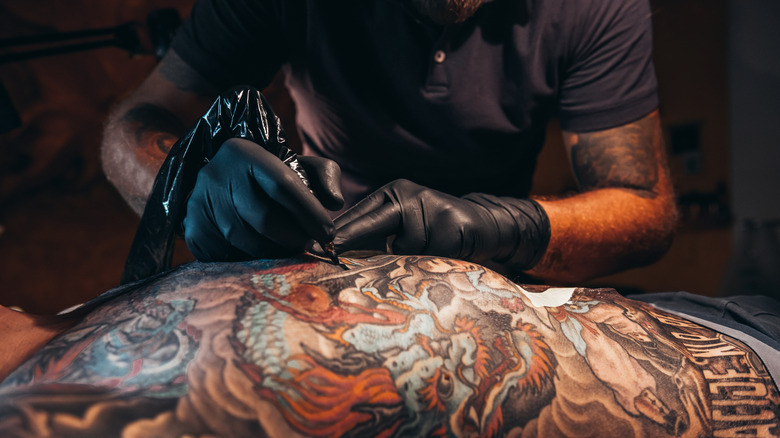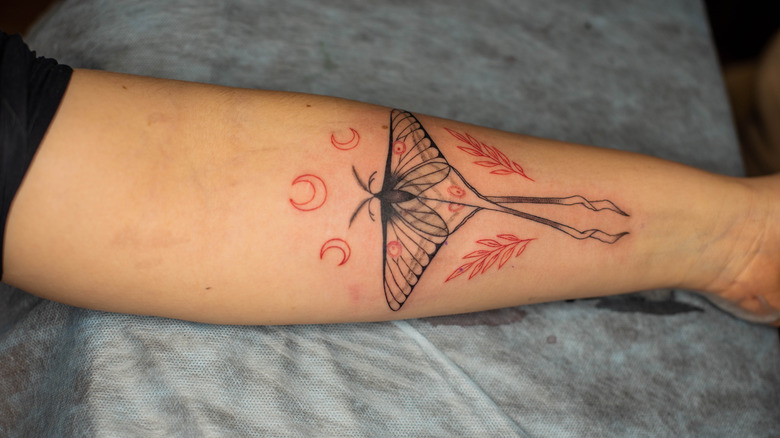What Really Makes Tattoos Permanent?
From choosing what exactly you want to choosing the right artist for the job, getting a tattoo is a big commitment — after all, this piece of art will spend forever on your skin. Unlike henna or "made-to-fade" tattoos that stick to the epidermis, per WebMD, the process of actually injecting ink into the skin with a needle permeates the middle layer — the dermis. Any ink deposited in the outermost layer of the skin eventually sheds and peels off, which occurs during the healing process, but the deep ink is there for life.
Tattoos do eventually fade over time, but they don't disappear completely (unless you decide to remove your ink by lasering it off, and even then it may not entirely fade). This is where touch-ups come in handy, where more ink is deposited in the skin to give a piece of art new life or even to correct mistakes done at the initial appointment. According to Authority Tattoo, you can even skip that step completely and have a cover-up if you're bored of the design you picked all those years ago (or it just so happens to be a name of your ex).
But speaking of the permanency of the ink, just how does the tattooing process make the ink a lifelong commitment?
Your immune system is ultimately what makes your tattoo permanent
The reason why your tattoo is permanent boils down to how skin reacts to ink deposits. The skin doesn't actually absorb ink as many previously thought — immune system cells called macrophages "eat the ink" according to NBC News, and pass it on to other cells.
As the needle punctures into this middle layer, which contains tough connective tissue, hair follicles, and sweat glands, according to WebMD, "it causes a wound that alerts the body to begin the inflammatory process, calling immune system cells to the wound site to begin repairing the skin," neuroscientist and mind-body expert Dr. Claudia Aguirre explained during a TED Talk. This process essentially traps the ink under the skin, and therefore causes the tattoo to be permanent.
"We further demonstrated that tattoo pigment particles can undergo successive cycles of capture-release-recapture without any tattoo vanishing," Anna Baranska, of the French research institute INSERM, wrote in a report published in the Journal of Experimental Medicine (via Rockefeller University Press).

